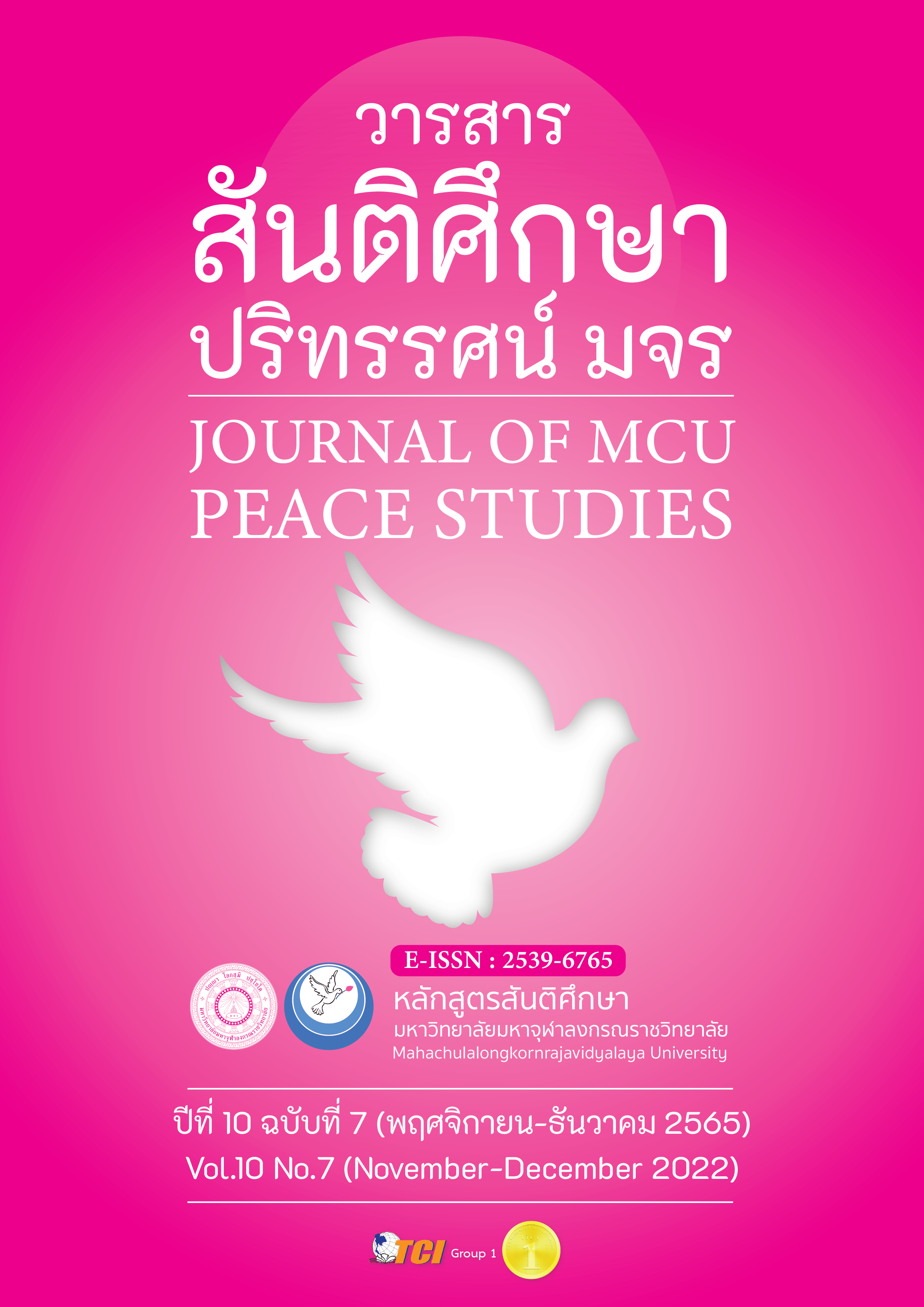การพัฒนาการเมืองท้องถิ่นด้วยกระบวนการแบบมีส่วนร่วม ของภาคประชาชนตามวิถีประชาธิปไตย
Main Article Content
บทคัดย่อ
บทความวิชาการต้องการศึกษาและอธิบายให้เห็นถึงบทบาทสำคัญของการเมืองการปกครองท้องถิ่นโดยใช้การมีส่วนร่วมของภาคประชาชน ด้วยกระบวนการพัฒนาท้องถิ่นโดยการมีส่วนร่วมของภาคประชาชนตามวิถีประชาธิปไตย ตามรูปแบบในการพัฒนาของการเมืองและการปกครองส่วนท้องถิ่นในประเทศไทย พร้อมกับการพัฒนาสังคมและประเทศชาติ ในการขับเคลื่อนงานประเทศในแผนพัฒนายุทธศาสตร์ชาติ 20 ปี ของประเทศไทยนั้น ผู้เขียนให้ความสำคัญกับการพัฒนาชุมชน สังคม ท้องถิ่น การเมืองและการมีส่วนร่วมของประชาชน ที่ส่งเสริมและสนับสนุนให้มีบทบาทในการพัฒนาและการขับเคลื่อนพื้นที่เป็นตัวตั้งในชุมชนท้องถิ่นอย่างแท้จริง รวมถึงการพัฒนามีส่วนร่วมกับหน่วยงานภาครัฐและภาคเอกชน และความสำคัญกับการพัฒนา แบบบนลงล่าง (Top-Down) และล่างขึ้นบน (Bottom-Up) โดยมีการเน้นสายงานไปตามรูแบบตามกระบวนการที่ปฏิบัติจริงๆ ตามสายบังคับการ เพื่อความเสมอภาคและถ่ายทอดวิถีชีวิตของประชาชนในพื้นที่ ของปัญหาและสภาพการเปลี่ยนแปลงข้อจำกัดของกลไกรัฐที่ไม่สามารถตอบปัญหาความต้องการ หรือการแก้ไขปัญหาได้ครอบคลุมและทันท่วงที สุดท้ายผู้เขียนเสนอแนะว่าการเมืองท้องถิ่นด้วยกระบวนการพัฒนาโดยการมีส่วนร่วมของภาคประชาชนตามวิถีประชาธิปไตยสู่การพัฒนาชุมชน สังคม ท้องถิ่น โดยใช้ภาคประชาชนและภาคประชาสังคมให้มีส่วนรวมในการใช้พื้นที่ท้องถิ่นเป็นตัวแบบในการพัฒนาชุมชนท้องถิ่นและการตื่นตัวจากประชาชนอย่างแท้จริง
Article Details

อนุญาตภายใต้เงื่อนไข Creative Commons Attribution-NonCommercial-NoDerivatives 4.0 International License.
ทัศนะและความคิดเห็นที่ปรากฏในบทความในวารสาร ถือเป็นความรับผิดชอบของผู้เขียนบทความนั้น และไม่ถือเป็นทัศนะและความรับผิดชอบของกองบรรณาธิการ ยินยอมว่าบทความเป็นลิขสิทธิ์ของวารสาร
เอกสารอ้างอิง
Anak, L. (1995). Two Nakhra Democracy: Guidelines for Political Economy Reform Democracy. Bangkok: Torch Printing Project.
_______. (1996). Looking at the Thai Political Economy. Bangkok: Torch Printing Project.
Anurak, N. (2011). Political Development and Public Participation. (1st ed.). Bangkok: Printing Office, Senate Secretariat.
Borwornsak, U. (2011). Report of Studies on Public Participation in Public Policy Processes. 2nd Edition. Bangkok: A. P. Graphic Company Limited Design and Printing.
Apichat, S. (2012). Constitution, Decentralization and Public Participation. (1st ed.). Bangkok: October Printing House.
Chairat, C. (2002). New Social Movements. (2nd ed.). Bangkok: Vipasa.
Kanuengnjisri, B. (2002). Guidelines for the Promotion of Participatory Democracy under the Constitution of the Kingdom of Thailand 1997: Problems, Obstacles and Solutions. Bangkok: King Prajadhipok's Institute.
Krittiya, A. (1999). Thai Civil Society Movement: Movement of Citizenship. Nakhon Pathom: Research Project and Civil Society Development, Mahidol University.
Nithi, E. (2003). Culture and Way of Thinking. Bangkok: Matichon.
Office of the National Commission for Decentralization. (2020). Rights of Public Participation. Retrieved November 30, 2021, from http://www.odloc.go.th/03/05/2020
Office of the National Economic and Social Development Board. (2018). National Strategy 2018 - 2037/Office of the Secretary of the National Strategy Committee. Office of the National Economic and Social Development Board. 2nd Edition, Bangkok: Secretariat of the National Strategy Committee Office of the National Economic and Social Development Board.
Oratai, K. (2009). Confidant Guide to Public Participation for Local Administrators. (1st ed.). Bangkok: Charansanitwong Printing.
Participation of the People. Retrieved November 13, 2020, from www.parliament.go.thewt admin/ewt/.../ article_20130607103810.ppt
Pattama, S. (2009). People's Participation in the Process of Public Policy. 2nd Edition, Bangkok: Research and Development Office King Prajadhipok's Institute.
Paiboon, W. (2014). People's Politics. Bangkok: Institute for Community Organization Development.
Tirayut, B. (1993). Strong Society. Bangkok: Mangmit Publishing.
Watchara, C. (2002). The Development of Political Participation and Participatory Democracy and Pluralism: Civil Politics. Retrieved May 12, 2021, from http://www.parliament.go.th/ 05/05/2020


